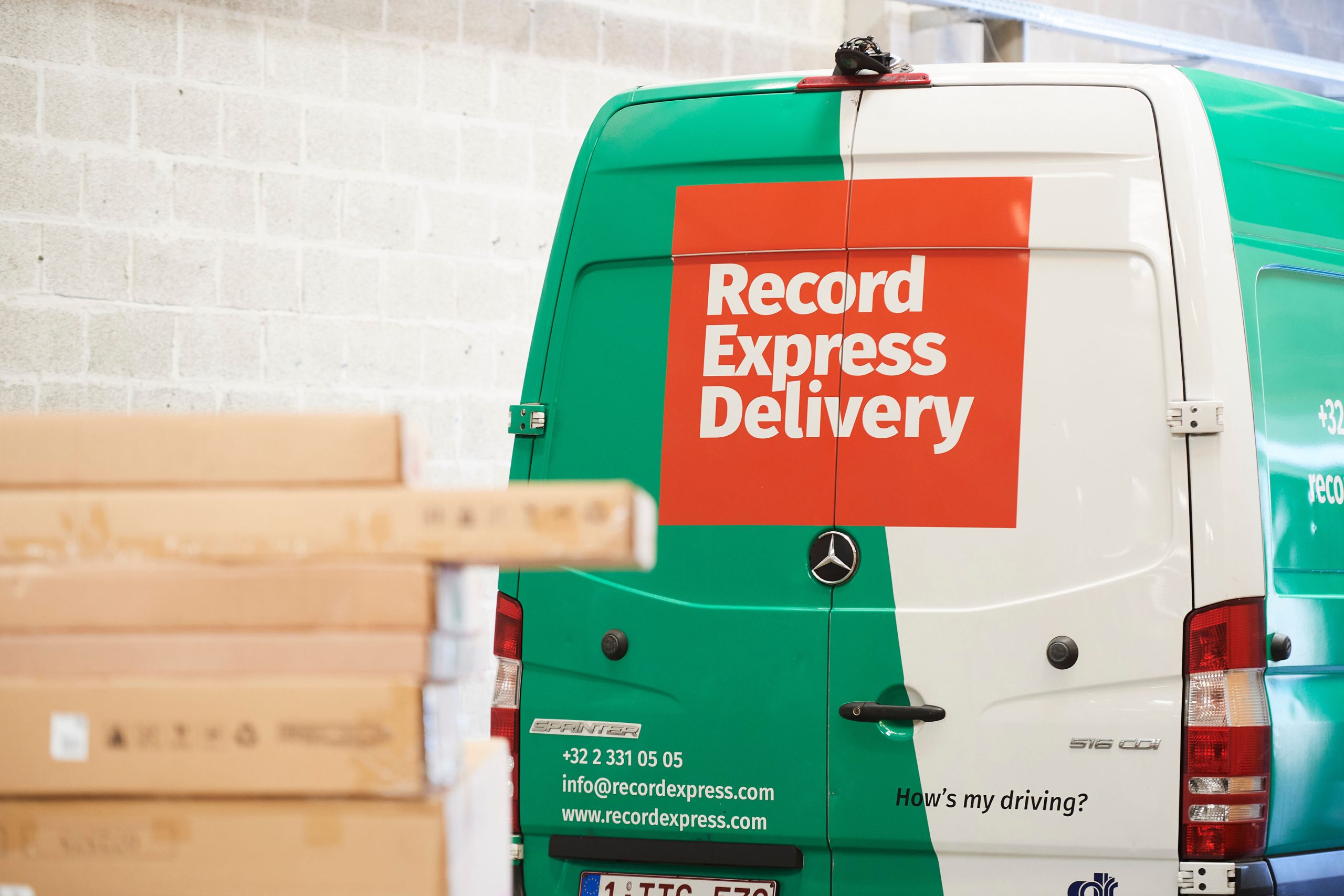Livraison de colis ou fret : Lequel utiliser ?
La livraison de colis et le transport de marchandises sont tous deux des services logistiques essentiels, mais ils conviennent à des types d'expédition très différents. Les colis sont idéaux pour les livraisons urgentes, légères et de petite taille, tandis que le fret est conçu pour les expéditions plus importantes, plus lourdes ou en vrac, pour lesquelles la rentabilité est essentielle. ENVOYER LE COLISHome / Logistique du commerce électronique / Livraison de colis ou fret : Lequel utiliser ?

Livraison de colis ou fret : Lequel utiliser ?
TL;DR : La livraison de colis et le transport de marchandises sont tous deux des services logistiques essentiels, mais ils conviennent à des types d’expédition très différents. Les colis sont idéaux pour les livraisons urgentes, légères et de petite taille, tandis que le fret est conçu pour les expéditions plus importantes, plus lourdes ou en vrac, pour lesquelles la rentabilité est essentielle. Le bon choix dépend de vos marchandises, de vos délais et de votre budget.
Qu’est-ce que la livraison de colis dans le domaine de la logistique ?
La livraison de colis désigne le transport de petits paquets, pesant généralement moins de 30 kg, par l’intermédiaire de réseaux de messagerie ou postaux(DHL). Les colis sont traités par des centres de distribution à grand volume et sont conçus pour répondre aux attentes de livraison rapide, en particulier dans le domaine du commerce électronique.
- Généralement pour les articles de moins de 30 kg ou les boîtes de taille standard.
- Livrés par des réseaux de messagerie avec suivi en temps réel
- Les options rapides comprennent l’expédition le jour même, le lendemain ou le surlendemain.
- Courant pour le commerce électronique B2C, les petits envois B2B et les biens de consommation.
- Les prix sont basés sur le poids, les dimensions et la vitesse de livraison.
La logistique des colis repose sur la flexibilité et la rapidité. Les consommateurs exigeant des délais de livraison plus courts, les services de colis sont structurés de manière à pouvoir traiter des millions de petits envois chaque jour, avec cohérence et visibilité du suivi.
À retenir : La livraison de colis convient mieux aux petits envois urgents pour lesquels la rapidité et le suivi sont des priorités.
Qu’est-ce que le transport de marchandises ?
Le transport de marchandises désigne le transport de marchandises plus grandes, plus lourdes ou en vrac, généralement transportées sur des palettes ou dans des conteneurs(UPS). Le fret peut être transporté par route, par air ou par mer et est généralement facturé au poids, au volume ou à la charge du conteneur.
- Convient pour les articles de plus de 30 kg ou plus grands que les dimensions du colis
- Méthodes courantes : Chargement partiel (LTL), chargement complet (FTL), fret aérien ou fret maritime.
- Idéal pour les marchandises en vrac, les matières premières ou les grandes machines
- Coût unitaire inférieur pour les envois importants
- Temps de transit plus longs que ceux des réseaux de messagerie
Le fret est moins une question de vitesse que d’échelle et d’efficacité. Pour les entreprises qui transportent de gros volumes, le fret permet de réaliser d’importantes économies et d’assurer un approvisionnement fiable sur de longues distances.
À emporter : Le fret est le bon choix pour les expéditions lourdes, en vrac ou industrielles pour lesquelles le rapport coût-efficacité est le plus important.
Comment les structures de coûts se comparent-elles entre le colis et le fret ?
La livraison de colis coûte plus cher par unité pour les envois plus importants, tandis que le fret devient moins cher à mesure que le volume des envois augmente(FedEx).
- Colis : prix par paquet, par poids et par taille
- Fret : prix par palette, par conteneur ou par poids/volume total.
- Les tarifs des colis augmentent fortement pour les marchandises plus lourdes ou surdimensionnées
- Le fret bénéficie d’économies d’échelle pour les gros envois
- Les options de colis express sont généralement plus chères que le fret par kilogramme.
Les décisions en matière de coûts se résument souvent à des seuils. Par exemple, envoyer 200 petits paquets individuellement peut s’avérer beaucoup plus coûteux que de les regrouper sur une seule palette pour le fret.
À retenir : Les colis coûtent plus cher pour les expéditions plus lourdes, tandis que le fret réduit les coûts unitaires à grande échelle.
Qu’est-ce qui est le plus rapide : le colis ou le fret ?
Les services de colis sont généralement plus rapides que le fret parce qu’ils sont conçus pour les réseaux de livraison à grande vitesse des consommateurs(IBM).
- Colis : la livraison le lendemain ou le surlendemain est courante.
- Fret : les délais de transport varient de quelques jours à quelques semaines en fonction du mode de transport.
- Le fret aérien est l’option de transport la plus rapide mais coûteuse.
- Le fret maritime offre les coûts les plus bas mais les délais les plus longs
- Les transporteurs de colis privilégient la rapidité, tandis que le fret se concentre sur l’efficacité
Pour les entreprises, le choix dépend de l’urgence. Les colis garantissent la rapidité et le suivi, tandis que le fret est mieux adapté aux livraisons programmées avec des délais prévisibles.
À retenir : Les colis gagnent en rapidité, tandis que le fret convient aux envois planifiés et non urgents.
Comment les entreprises choisissent-elles entre la livraison de colis et le fret ?
Les entreprises décident en fonction de la taille de l’envoi, de l’urgence et de la rentabilité(McKinsey).
- Utilisez les services de colis pour les petites commandes, les envois urgents et le commerce électronique.
- Utilisez le fret pour les importations en vrac, les livraisons industrielles ou les marchandises sensibles aux coûts.
- Approches hybrides : mélange de colis pour les commandes urgentes et de fret pour les stocks réguliers.
- Tenir compte des attentes des clients en matière de délais de livraison
- Évaluez le coût au débarquement, y compris les droits de douane et les frais de manutention.
Le bon équilibre dépend souvent du modèle d’entreprise. Les détaillants peuvent préférer la livraison de colis pour satisfaire leurs clients, tandis que les fabricants dépendent fortement du fret pour l’acheminement des matières premières et des composants.
À retenir : Adaptez le mode d’expédition à la valeur, à la taille et à l’urgence de vos marchandises.
Comment Record Express soutient les décisions en matière de colis et de fret
Record Express aide les entreprises belges à gérer les options de livraison de colis et de livraison accélérée, en guidant les clients vers les solutions de messagerie ou les partenaires de fret qui leur conviennent le mieux.
- Solutions pour colis avec suivi en temps réel pour les envois urgents
- Options de courrier accéléré pour une livraison le jour même et le lendemain
- Conseils sur le moment de regrouper les envois en fret
- Couverture locale à Bruxelles, Anvers, Gand et au-delà
- Un réseau de partenaires de confiance pour le fret là où l’échelle est nécessaire
Grâce à sa connaissance approfondie de la logistique belge, Record Express veille à ce que les entreprises puissent équilibrer coût, rapidité et fiabilité dans leurs stratégies de livraison.
🔗 Lecture connexe :
- Fret et messagerie : Principales différences
- Expédition accélérée : Comment cela fonctionne-t-il ?
- Qu’est-ce qu’un service de courrier ?
- La logistique inverse expliquée
- Courrier ou livraison express
FAQ
1. Quelle est la principale différence entre un colis et un fret ?
La livraison de colis permet de traiter rapidement les petits paquets, tandis que le fret gère les expéditions plus importantes de manière plus rentable.
2. Le fret est-il toujours plus lent que la livraison de colis ?
En général, oui, mais le fret aérien peut être plus rapide que certains services de colis.
3. Qu’est-ce qui est le plus cher : le colis ou le fret ?
Les colis sont plus coûteux par kilogramme pour les marchandises lourdes, tandis que le fret est moins cher à l’échelle.
4. Les petites entreprises peuvent-elles utiliser les services de fret ?
Oui. Les PME ont souvent recours au fret pour les importations ou les commandes en gros régulières.
5. Record Express s’occupe-t-il directement du fret ?
Record Express se concentre sur les solutions de transport de colis et de courrier accéléré, mais s’associe à des fournisseurs de fret lorsque ses clients ont besoin d’une plus grande envergure.
Sources d’information

Record Express was awarded a 59/100 score by EcoVadis, the global leader in sustainability ratings.